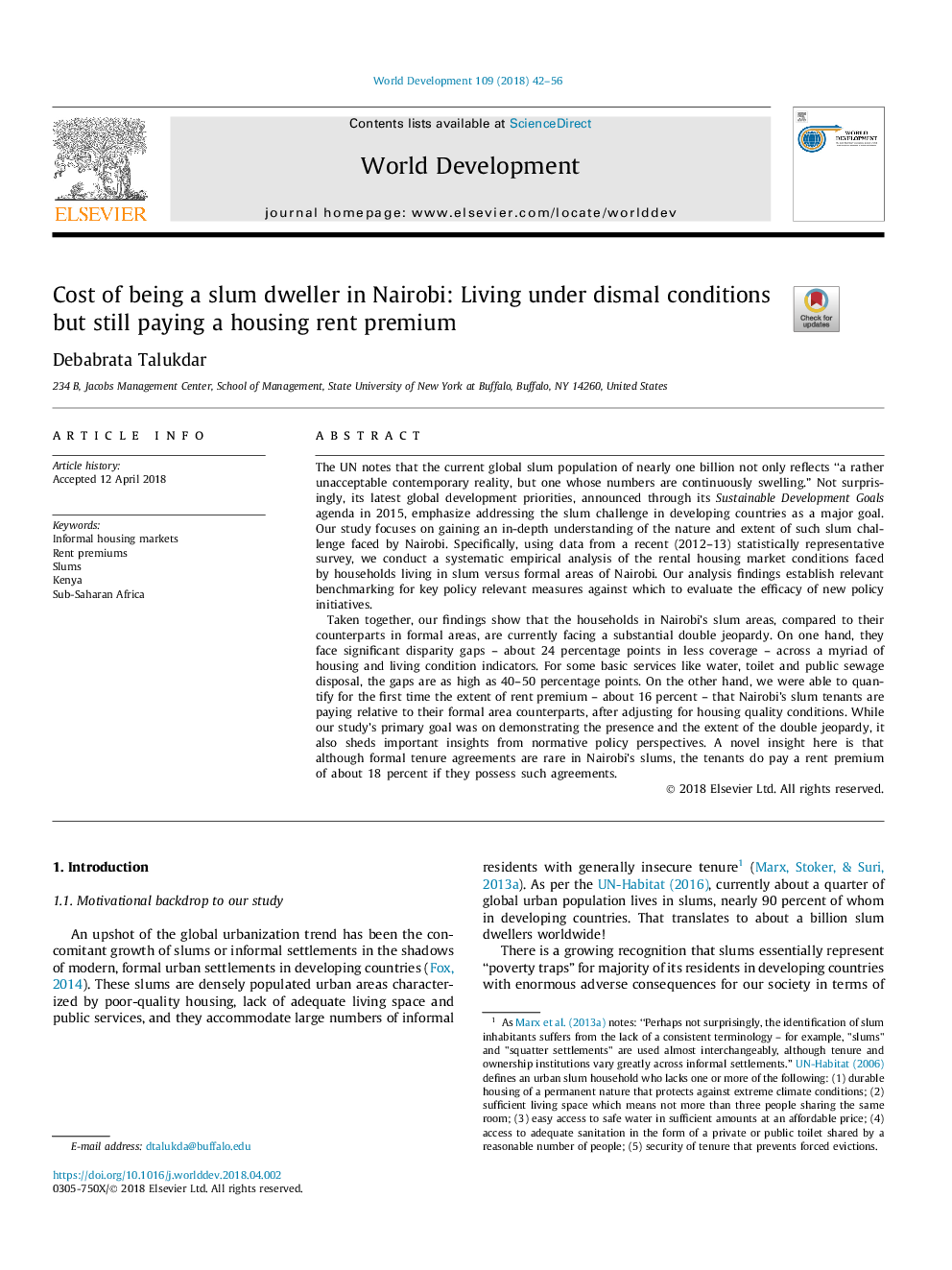| Article ID | Journal | Published Year | Pages | File Type |
|---|---|---|---|---|
| 7391531 | World Development | 2018 | 15 Pages |
Abstract
Taken together, our findings show that the households in Nairobi's slum areas, compared to their counterparts in formal areas, are currently facing a substantial double jeopardy. On one hand, they face significant disparity gaps - about 24 percentage points in less coverage - across a myriad of housing and living condition indicators. For some basic services like water, toilet and public sewage disposal, the gaps are as high as 40-50 percentage points. On the other hand, we were able to quantify for the first time the extent of rent premium - about 16 percent - that Nairobi's slum tenants are paying relative to their formal area counterparts, after adjusting for housing quality conditions. While our study's primary goal was on demonstrating the presence and the extent of the double jeopardy, it also sheds important insights from normative policy perspectives. A novel insight here is that although formal tenure agreements are rare in Nairobi's slums, the tenants do pay a rent premium of about 18 percent if they possess such agreements.
Keywords
Related Topics
Social Sciences and Humanities
Economics, Econometrics and Finance
Economics and Econometrics
Authors
Debabrata Talukdar,
